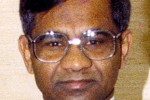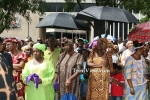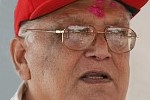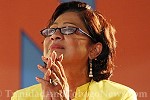By Stephen Kangal
February 15, 2011
 Professor Selwyn Cudjoe in his article wrote:
Professor Selwyn Cudjoe in his article wrote:
“In his ‘Mother Trinidad and Tobago Speech’ Dr. Williams intimated that we owe our primary allegiance to T&T rather than the various countries from which our ancestors came. In 2010, angered by the seemingly preferential treatment that Africans enjoyed under the People’s National Movement, the People’s Partnership (PP) decided to emphasize our difference rather than our commonalities thereby tearing away at the common cultural bond that holds us together as a nation”. (Selwyn Cudjoe in “Mother Trinidad and Tobago” Article – trinicenter.com – 16 January 2011).
Continue reading Cudjoe and His Careless Thinking




